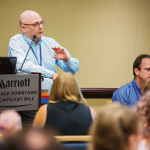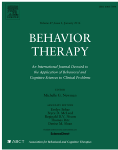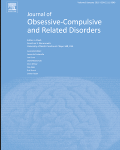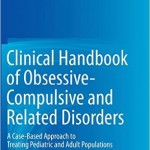Each month we bring you the latest in research news and information on obsessive compulsive disorder (OCD). In this month’s edition, we also feature a special quarterly research highlight on body dysmorphic disorder (BDD).
Spotlight is also available via email so you can receive the latest research news and information directly in your inbox. Sign up to receive our March update, as well as all future issues, by going here and selecting the “Spotlight” option on our email signup form.
Making Headlines
OCD advocates and stories making news around the globe this winter
The Girl in the Waiting Room
Huffington Post, December 2015
A personal story shared on the Huffington Post’s college section finds the author reflecting on lessons learned about the power of community gleaned from time spent in a waiting room. As the author says, “If there’s one thing I’ve learned in the past six years, it’s that I’m not alone.”
Virtual Reality Therapy: Treating The Global Mental Health Crisis
TechCrunch, January 2016
Virtual reality (VR) has been used for decades as a tool for therapists to administer virtual reality exposure therapy (VRET) in a safe and controlled manner. Due to cost and technology limitations, it has not been widely available to date. With the advent of affordable mobile VR headsets, such as the Gear VR, there is a new opportunity to apply telemedicine to reach more patients with treatment and improve lives around the world.
Dog DNA probed for clues to human psychiatric ills
Nature, January 2016
A new research project called Darwin’s Dogs, led by a team at the University of Massachusetts Medical School, has now enrolled over 3,000 pets to help researchers compare information about the behavior of thousands of dogs against the animals’ DNA profiles. The hope is that genetic links will emerge for conditions such as canine compulsive disorder — the dog analogue of obsessive compulsive disorder.
15 Things People with OCD Want You to Know
Health.com, December 2015
This article, covering topics like how many people have OCD, examples of both obsessions and compulsions, who’s affected by OCD, and mention of several related disorders, also includes input from individuals such as IOCDF Board Member Diane Davey, IOCDF spokespeople Ethan Smith and Romina Vitale, OCD Twin Cities President Alison Dotson, and others.
SCB Showcase
Members of the IOCDF Scientific & Clinical Advisory Board (SCB) are among the best clinicians and investigators in the United States who treat and/or conduct research in the field of OCD and related disorders. Here, we recognize SCB members whose work has recently turned heads in the scientific community or general public.
The Behavior Therapy Training Institute for OCD: A preliminary report ($)
Journal of Obsessive-Compulsive and Related Disorders, January 2016
Despite decades of research demonstrating the efficacy of cognitive behavioral therapy (CBT) for OCD, many clinicians have not adopted it into their practice. In an effort to increase the number of trained clinicians, the IOCDF developed a nationwide intensive training program called the Behavior Therapy Training Institute (BTTI). This report, written in part by SCB members C. Alec Pollard, PhD, and Sabine Wilhelm, PhD, surveys past BTTI participants, to examine the benefits of this training program. Participants reported more than moderate use of all skills learned during the training; completion of the phone consultation and peer consultation after the training were associated with even greater skills use.
OCD Research Corner
A monthly roundup of the latest in OCD research from scientific journals and other publications
Clinical Feedback About Empirically Supported Treatments for Obsessive-Compulsive Disorder ($)
Behavior Therapy, January 2016
While many studies rely on test and experimental data from researchers, this study instead uses clinical observations and information provided by clinicians to identify which cognitive behavioral therapy (CBT) techniques were used most commonly in treating OCD, and what limitations of these techniques may be based on clinician experience and feedback. Based on therapists’ reports, the most common barriers to effectively using CBT to treat OCD included limited premorbid functioning, chaotic lifestyles, controlling and critical families, OCD symptom severity, OCD symptom chronicity, and comorbidities.
I do not know what else to do: Caregivers’ perspective on reassurance seeking in OCD ($)
Journal of Obsessive-Compulsive and Related Disorders, January 2016
Excessive reassurance seeking (ERS) is an under-researched and poorly understood behavior that can resemble OCD symptoms such as compulsive checking. ERS can be complex, persistent, extensive, debilitating, and may dominate people’s interactions when caregivers can feel as if they need to provide the assurance being sought in order to help an individual with OCD. This investigation interviews caregivers who provide reassurance to OCD sufferers to identify common threads and potential problems of this behavior, revealing common themes such as how people seek reassurance, and how they process it.
Publication Feature: Clinical Handbook of Obsessive–Compulsive and Related Disorders
Springer International Publishing, 2016
This handbook is split into four sections to provide a clinical overview of OCD and related disorders. The first and second sections cover common symptoms and treatment methods for a variety of OCD symptoms and subtypes. The third section includes information about obsessive compulsive and related disorders (OCRDs) such as Tourette’s syndrome, hoarding disorder, and body dysmorphic disorder. Finally, the fourth section provides information about special groups to consider when treating OCD such as individuals with comorbidities like autism spectrum disorders, depression, etc., as well as typical barriers that can complicate treatment. The entire book, as well as specific chapters on topics like the ones previously listed, can be downloaded at the link above.
IOCDF Research Resources
Find other research-related resources from the IOCDF, including:
- Join a research study as a participant
- Learn about the IOCDF Research Grant Program
- Donate to the IOCDF Research Grant Fund
For researchers:


Leave a Reply